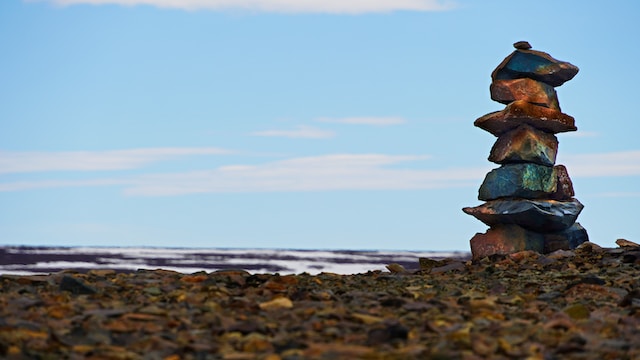Cambridge Bay, NU – As this year’s wildfire season has shown us, Northern and Indigenous communities are already feeling the devastating effects of climate change, and it’s crucial that they have the tools they need to lead on adapting to the changing environment. Polar Knowledge Canada (POLAR) has announced the recipients of its $1.7 million funding through their Yukon call for proposals 2023-26. These projects promise to advance knowledge on the call’s strategic theme: climate change impacts and adaptation strategies in the Yukon.
The recipients are:
- Teslin Tlingit Council will receive more than $375,000 towards their project “Win-win solutions for climate change adaptation in Yukon.” This is an investment in sound, locally relevant tools and approaches to forest management.
- Université de Montréal will receive over $430,000 for a collaborative project with the Kluane First Nation. Their goal is to improve climate change predictions in the Lhù’ààn Mân region by building climate change decision-making capacity within the Kluane First Nation community.
- The First Nation of Na-Cho Nyäk Dun will receive over $330,000 for monitoring and mapping to support a cumulative effects assessments of water quality and fish habitat in the Stewart River watershed and southern traditional territory of the First Nation of Na-Cho Nyäk Dun.
- The Government of Yukon, working collaboratively with the Vuntut Gwitchin First Nation Government, will receive over $300,000 to look at the changing ecology of the moose and wolves within the Porcupine Caribou range in the Yukon.
- Vuntut Gwitchin First Nation, in collaboration with the First Nation of Na-Cho Nyak Dun and Tr’öndek Hwëch’in First Nation, will receive over $272,000 to develop the North Yukon Climate Solutions Circle of Experts. This circle of experts will explore climate solutions rooted in Indigenous science and ways of being, to build sustainability, climate resilience and self-determination for First Nations in northern Yukon.
These projects focus on creating sustainable solutions and futures for Yukon communities. They highlight the connections between climate change, community well-being and ecosystem health, while emphasizing self-determination in research centred on Yukon First Nation priorities and community-led initiatives.
In selecting the recipients, POLAR worked with a steering committee that included Yukon First Nations, the Yukon Government and Yukon-based research practitioners for guidance.
“Whether it’s forest management or monitoring and mapping, planning for climate challenges is possible because of locally-led projects like these that equip communities with information that helps them better understand and adapt as the North and Arctic faces some of the harshest effects of climate change. Our government is continuing to work with northern and Indigenous partners in supporting projects that work in their communities, based on traditional Indigenous Knowledge and ways of knowing.” – Honourable Dan Vandal, Minister of Northern Affairs, PrairiesCan and CanNor
Quick facts
- Polar Knowledge Canada (POLAR) is a Government of Canada agency responsible for strengthening Canadian leadership in polar science and technology. It is headquartered at the Canadian High Arctic Research Station (CHARS) campus, which it operates in Cambridge Bay, Nunavut.
- POLAR’s Science and Technology goals are the following:
- Improving knowledge of dynamic northern terrestrial, freshwater and marine ecosystems in the context of rapid change;
- Increasing understanding of the connections between northern community wellness and environmental health; and
- Advancing sustainable energy, technology and infrastructure solutions for the unique environmental, social and cultural conditions in the North.









